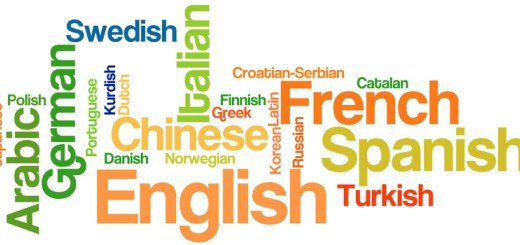Learning to speak the names of languages in Japanese is useful in many situations, especially when you want to communicate your language interests, skills or even seek learning opportunities with native speakers.
In this article, we are going to share a list of languages in Japanese along with words ending in the ideogram [語]. Here you will find languages, dialects, and other related words in Japanese.
The ideogram [語] is used to refer to languages. When you come across the name of a country followed by the ideogram [語] that is pronounced GO, you are certainly referring to the language of the country.
Table of Content
The meaning of the character 語 (go)
The Japanese ideogram “go” (語) is an essential component in building words that represent languages. Understanding the meaning and etymology of this ideogram will help you better understand how language names are formed and used in Japanese.
The ideogram "go" (語) is composed of two main components, called radicals. The upper stem is "言" (gon), which means "word" or "speak". The lower radical is "五" (go), which represents the number five and ending with the mouth radical "口". Together, these radicals form the ideogram "語", which can be translated as "language", "language" or "word".
The etymology of “go” dates back to ancient China, where the ideogram was originally used to represent speech or language in general. It is believed that the root “五” (go) was added to emphasize the idea of a variety of sounds, thus expressing the diversity and complexity of human language.
List of Languages in Japanese
Let's start by sharing a list of Japanese language languages below:
| Language | Japanese | Romaji |
| Russian | ロシア語 [露語] | roshia go |
| German | ドイツ語 | doitsugo |
| Árabe | アラビア語 | arabiago |
| Azerbaijani | アゼルバイジャン語 | azerubaijango |
| Bahasa Malaysia - Malay Language | マレーシア語 | mare-shiago |
| Bengali | ベンガル語 | bengarugo |
| Burmese | ビルマ語 | birumago |
| Bulgarian | ブルガリア語 | burugariago |
| Kannada | カンナダ語 | kannadago |
| Catalan | カタルーニャ語 | kataru-nyago |
| Chinese | 中国語 | chuugokugo |
| Korean | 韓国語(朝鮮語) | kankokugo |
| Danish | デンマーク語 | denma-kugo |
| Spanish | スペイン語 | supeingo |
| Flamengo | フラマン語 | framango |
| French | フランス語 | furansugo |
| Guzerate | グジャラート語 | gujaraatogo |
| Hindi | ヒンディー語 | hindi-go |
| Dutch | オランダ語 | orandago |
| Hungarian | ハンガリー語 | hangari-go |
| English | 英語 | eigo |
| Italian | イタリア語 | itariago |
| Japanese | 日本語 | nihongo |
| Javanese | ジャワ語 | jawago |
| Malayalam | マラヤーラム語 | marayaaramugo |
| Marathi | マラーティー語 | maraatiigo |
| Norwegian | ノルウェー語 | noruwe-go |
| Oriá | オリヤー語 | oriyaago |
| Persian | ペルシア語 | perushiago |
| Polish | ポーランド語 | poorandogo |
| Portuguese | ポルトガル語 | porutogarugo |
| Russian | ロシア語 | roshiago |
| Serbian | セルビア語 | serubiago |
| Swedish | スウェーデン語 | swe-dengo |
| Thai | タイ語 | taigo |
| Tamil | タミル語 | tamirugo |
| Telugu | テルグ語 | terugugo |
| Turkish | トルコ語 | torukogo |
| Ukrainian | ウクライナ語 | ukurainago |
| Urdu | ウルドゥー語 | uruduugo |
| Vietnamese | ベトナム語 | vetonamugo |
| Latin | ラテン語 | ratengo |
| Hebrew | ヘブライ語 | heburaigo |

Words ending in go [語]
Most of the words ending with [語] are pronounced GO, but there are exceptions like monotagari [物語] which means story. In the table below, we will present some words that specifically end with GO [語].
| Portuguese | Japanese | Romaji |
| Language | 言語 | gengo |
| national language | 国語 | kokugo |
| Respectful Language | 敬語 | keigo |
| Abbreviation | 略語 | ryakugo |
| Foreign language | 外国語 | gaikokugo |
| Written language | 文語 | bugo |
| Dead language | 死語 | shigo |
| polite language | 丁寧語 | teineigo |
| Japanese language | 和語 | wago |
| Irony | 反語 | hango |
| Vulgar Language | 卑語 | higo |
| Multilingual | 多言語 | tagengo |
| baby language | 幼児語 | youjigo |
| inverted word | 倒語 | tougo |
| Edo dialect | 江戸語 | edogo |
| British English | 英英語 | eieigo |
| Sign language | 手話 | shuwa |
Japanese phrases about languages
I would like to learn French to visit France one day.
フランス語を学んで、いつかフランスを訪れたいと思います。 Furansugo wo manande, itsuka Furansu wo otozuretai to omoimasu.
Spanish is a romantic language.
スペイン語はロマンチックな言語です。 Supeingo wa romanchikku na gengo desu.
The German language has many words that are difficult to pronounce.
ドイツ語には発音の難しい単語がたくさんあります。 Doitsugo niwa hatsuon no muzukashii tango ga takusan arimasu.
Chinese is a tonal language.
中国語は声調言語です。 Chuugokugo wa seichou gengo desu.
I love listening to songs in Italian.
イタリア語の音楽を聴くのが大好きです。 Itariago no ongaku wo kiku no ga daisuki desu.
Russian has a different alphabet than ours.
(ロシア語には、私たちのアルファベットとは違うアルファベットがあります。 Roshia-go niwa, watashitachi no arufabetto towa chigau arufabetto ga arimasu.
